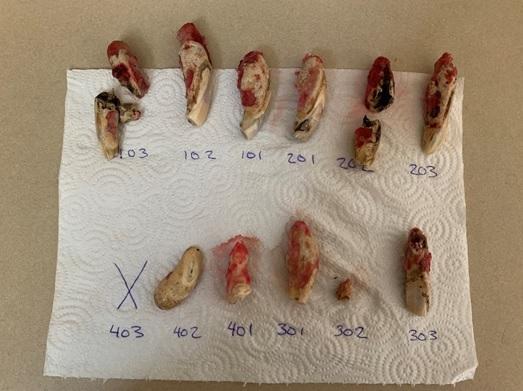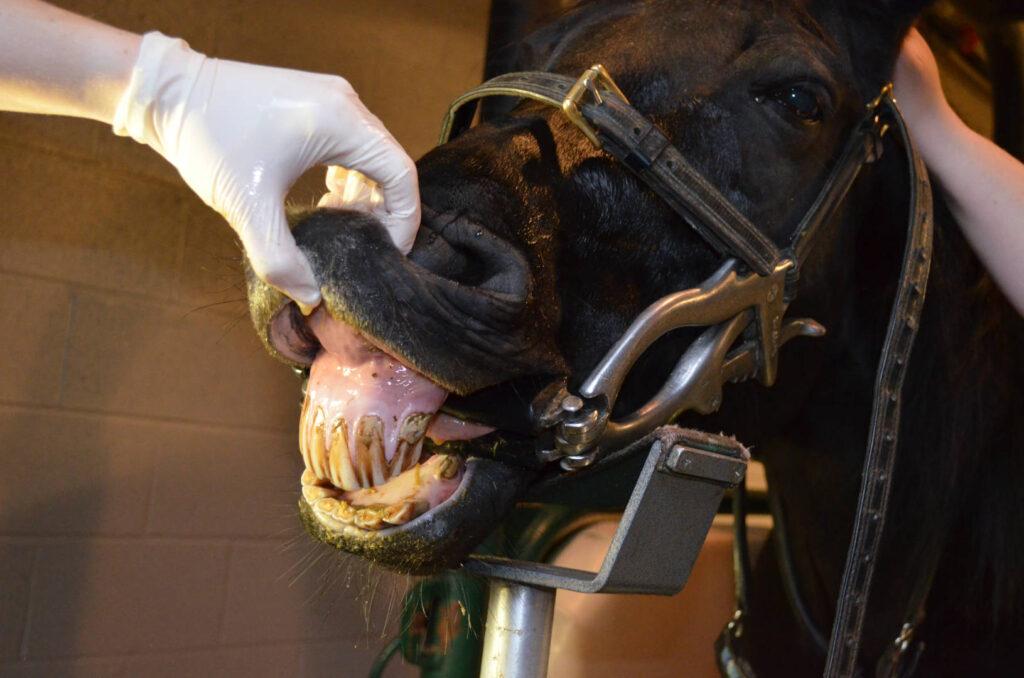Routine dental care is a necessary part of your horse’s overall healthcare. Proper occlusion and wear are essential for the longevity of your horse. Common complications as a result of poor dentition include:


When should oral exams and teeth floating begin?
Starting as yearlings, each horse should have (at minimum) annual examinations to determine the health of the oral cavity. Some horses require more frequent floating than others to remove sharp enamel points. Factors that can affect this include age, absence of opposing teeth, and asymmetries of the jaws or dental arcades. As horses enter into their geriatric years periodontal disease becomes a major concern.
The Procedure
At Cleveland Equine Clinic all dentistry is performed with power equipment by a licensed veterinarian. Hand floats are available where applicable. The advantage to power tools is two-fold: 1) The equipment can be directed to only remove sharp enamel points as opposed to the entire occlusal surface of the tooth, 2) there is less soft tissue injury occurring in the mouth. A physical exam is performed to ensure your horse is suited for sedation. An oral speculum is placed in the mouth for adequate visualization. Only the sharp enamel points and other incongruences are to be removed during floating.
Additional services offered
Remember the digestive tract begins with the oral cavity so let’s ensure your horse has the ability to comfortably and adequately extract nutrition from their feed.
Monday – Friday
8:30am – 5:00pm
Saturday-Sunday
Emergency Service Open
